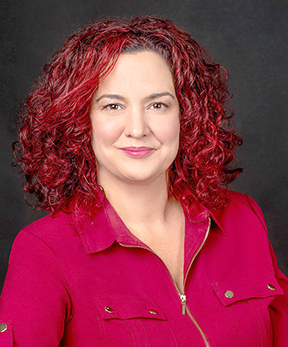Current Temperature
Stigma-Free mental heath expands into southern Alberta
Posted on September 12, 2024 by Ryan Dahlman Andrea Paquette, SFMHS president
Andrea Paquette, SFMHS presidentBy Nerissa McNaughton
Commentator/Courier
The Stigma-Free Mental Health Society (SFMHS) is thankful for a $25,000 Canada Post grant that is being used to expand the Stigma-Free School Program into southeastern Alberta. The Stigma-Free School Program, a leading initiative by SFMHS, provides a rich array of free resources designed specifically for students, educators, and school counselors. This program includes virtual classroom presentations, interactive toolkits, Stigma-Free Clubs, and professional development sessions.
In late 2023, SFMHS President Andrea Paquette moved from British Columbia to Medicine Hat. She has been engaging with a variety of organizations, including Eagle Butte High School.
“With the support of Canada Post and our local partners, we are ready to expand our reach and ensure that students in southeastern Alberta have access to mental health educational resources they need,” says Paquette.
Does she see a difference in mental health needs between BC and AB?
“While the mental health challenges faced by young students aren’t necessarily defined by geography, I’ve observed that certain factors can be more prominent in different regions. In Southern Alberta, for example, students may face unique challenges related to social isolation, particularly in rural areas where opportunities for social interaction outside of school can be limited,” Paquette says. “Additionally, there may be a stronger stigma around discussing mental health, making it harder for young people to seek help when they need it. In contrast, students in more urban areas of BC might experience different pressures, perhaps higher academic demands, or social stress from living in more densely populated areas.”
While the reasons for mental health stress may differ, the roots of the issue remain the same.
Paquette elaborates, “The fundamental issues—such as the need for mental health education, access to resources, and supportive environments—are consistent across both regions. One key difference I’ve noticed is the importance of community in Southern Alberta. While there might be fewer formal resources available, the tight-knit nature of these communities means there’s great potential for building strong, grassroots support systems for young people. This is where our programs, like the Rural Peer Support Fundamentals Training and Stigma-Free School Program, can play a crucial role in fostering resilience and support among students.”
Unfortunately, one of the longest-standing reasons for people not seeking help is still prevalent – the stigma.
“Stigmas around mental health persist, even among young students, due to a combination of fear, misunderstanding, and deeply ingrained societal attitudes,” says Paquette. “This can also lead to self-stigma, where children feel ashamed of their struggles and are hesitant to seek help, further isolating them and compounding their challenges.
“The Stigma-Free School Program, now being implemented further into Alberta, is designed to tackle these issues head-on. By providing accurate information and creating open dialogues in classrooms, this program helps break down the myths that contribute to stigma. It encourages students to understand that mental health challenges are a normal part of life and something that should be addressed with the same care as physical health.”
She continues, “Parents, too, may unintentionally perpetuate stigma due to their own fears or lack of understanding. Ultimately, the Stigma-Free School Program in Alberta is making a significant impact by reducing self-stigma among students and encouraging a more open, supportive dialogue about mental health within families and schools. This initiative is a crucial step toward creating environments where all students can thrive, free from the fear and isolation that stigma often brings.”
Leave a Reply
You must be logged in to post a comment.

